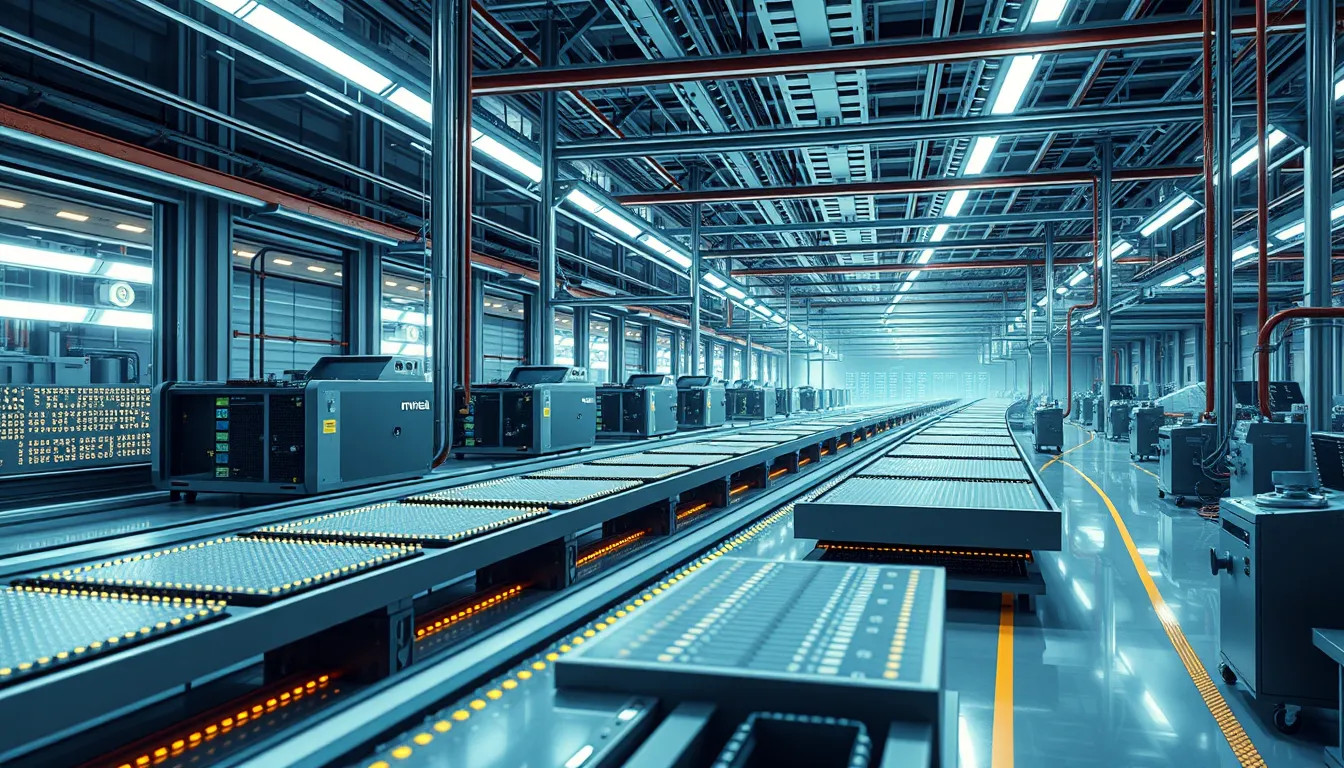Now Reading: Nvidia Blackwell AI Chip: Revolutionizing AI Acceleration
-
01
Nvidia Blackwell AI Chip: Revolutionizing AI Acceleration
Nvidia Blackwell AI Chip: Revolutionizing AI Acceleration

Nvidia Blackwell AI Chip: Revolutionizing AI Acceleration
The breakthrough in semiconductor technology is here. The Nvidia Blackwell AI chip is transforming the landscape of high-performance computing and AI acceleration technology. Developed with state-of-the-art advanced chip design principles, this revolutionary chip is engineered to excel in energy-efficient data processing. In collaboration with TSMC’s cutting-edge Arizona facility, the production of the Nvidia Blackwell AI chip represents a shift in how the tech industry approaches semiconductor manufacturing.
Manufacturing Breakthrough at TSMC Arizona Facility
TSMC’s Arizona facility is acclaimed for its sophisticated manufacturing processes and robust supply chain resilience. Situated in a strategically diversified location, the facility is pivotal for maintaining uninterrupted production lines during global uncertainties. The advanced capabilities of the TSMC Arizona facility ensure that semiconductor manufacturing meets the rigorous standards demanded by leading companies like Nvidia. This collaboration is not just about making chips—it’s about setting the foundation for the next generation of AI acceleration technology.
Production of Nvidia Blackwell AI Chip: Setting New Standards
A critical milestone in the journey of the Nvidia Blackwell AI chip is its production at TSMC’s high-tech Arizona facility. This production phase underlines the importance of geographic diversification in semiconductor manufacturing. It also assures supply chain resilience in an ever-evolving global market. The production of the Nvidia Blackwell AI chip is meticulously designed to:
- Achieve unmatched performance in data centers and cloud computing platforms.
- Deliver energy efficiency, reducing operational costs and environmental impact.
- Push the boundaries of high-performance computing with advanced AI acceleration technology.
Advanced Chip Design and Energy Efficiency
Nvidia’s innovative approach to chip design is the cornerstone of the Blackwell AI chip’s success. Emphasizing both high-performance computing and energy efficiency, the chip is engineered to handle complex machine learning algorithms and large-scale data processing seamlessly. Some of the key features include:
- A robust architecture tailored for AI workloads.
- Energy-efficient processing methods to maximize performance per watt.
- Scalable design attributes that allow integration into a multitude of embedded systems.
This combination of advanced chip design and energy efficiency makes the Nvidia Blackwell AI chip a game-changer in industries ranging from data centers to autonomous vehicles.
Benefits and Industry Impact
The ripple effects of the Nvidia Blackwell AI chip production are being felt across the tech landscape. Here are some notable benefits:
- Enhanced performance in processing complex algorithms.
- Reduced energy consumption, contributing to sustainable technology practices.
- Increased reliability in manufacturing due to TSMC’s resilient supply chain at the Arizona facility.
Industry experts and technology enthusiasts alike are celebrating this milestone. The partnership between Nvidia and TSMC not only embodies a spirit of innovation but also sets a precedent for future collaborations in semiconductor manufacturing.
The Future Landscape of AI and Semiconductor Manufacturing
Looking forward, the production of the Nvidia Blackwell AI chip is poised to influence several key areas in the tech industry. As businesses continue to evolve and adopt AI-driven solutions, the demand for efficient, high-performance chips will only increase. With Nvidia leveraging the best of advanced chip design and TSMC operational excellence, the future looks promising for sectors like high-performance computing, data centers, and beyond.
Additionally, this production milestone serves as a benchmark in addressing supply chain challenges. By investing in local manufacturing hubs such as TSMC’s Arizona facility, companies can mitigate geopolitical and logistical risks while ensuring a steady stream of technological innovations.
Industry Collaborations and Broader Implications
The synergistic relationship between Nvidia and TSMC is a testament to how collaborative efforts can lead to groundbreaking innovations in technology. This partnership is a crucial element for companies seeking to stay ahead in today’s competitive market. For more detailed insights on Nvidia’s contributions to AI, visit the official NVIDIA website. Similarly, learn more about TSMC’s manufacturing capabilities by visiting TSMC’s website.
Conclusion
In summary, the production of the Nvidia Blackwell AI chip marks a defining moment in semiconductor manufacturing. By integrating revolutionary chip design with TSMC’s advanced production facilities, Nvidia is setting new standards in AI acceleration technology. This collaboration not only promises enhanced performance and energy efficiency but also ensures a robust supply chain capable of meeting the surging global demand for innovative AI solutions. As the tech industry continues its rapid evolution, milestones such as these are sure to pave the way for a smarter, more connected future.

























